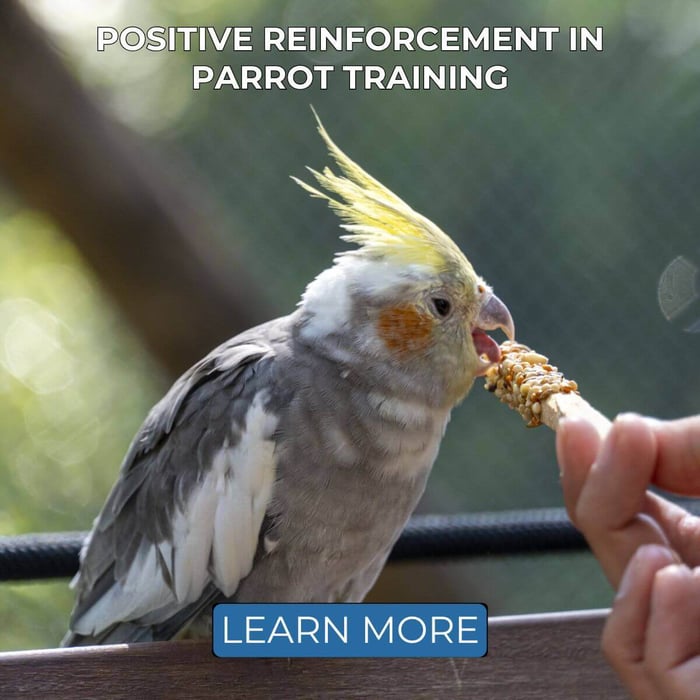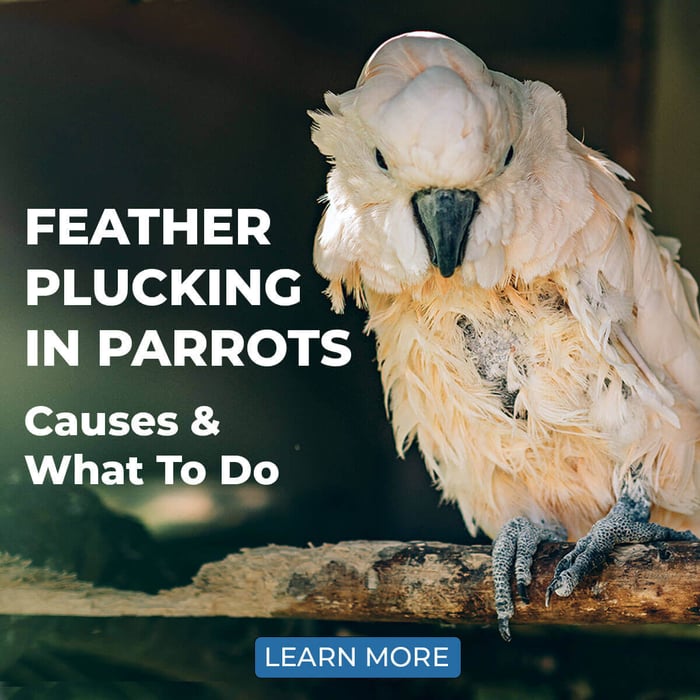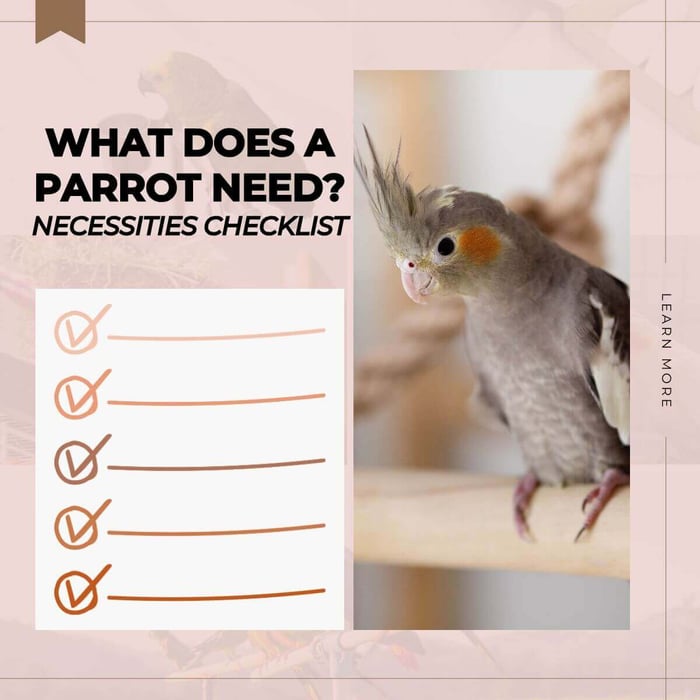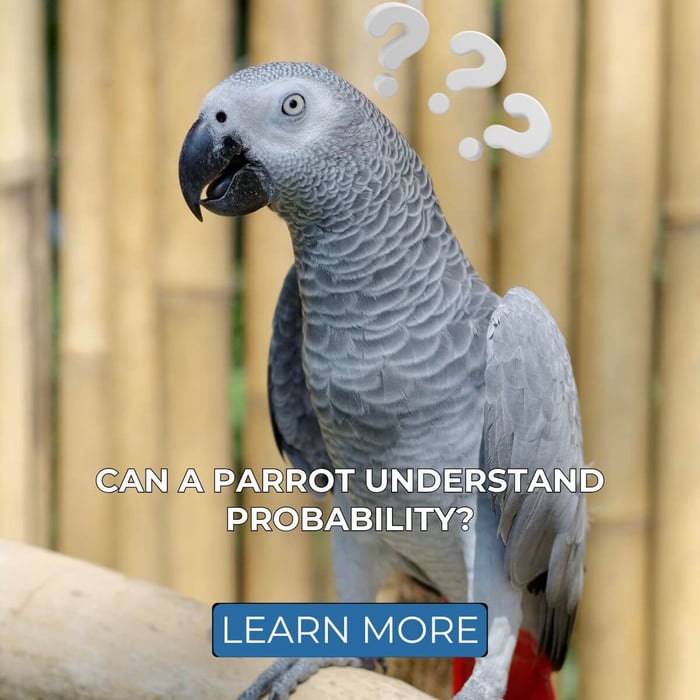What Are Organic Parrot Food Pellets?
If you've ever come across the phrase on a bag of parrot food, you may be wondering: what are organic parrot food pellets? The basic gist is that these pellets don't contain preservatives like ethoxyquin, BHA, and BHT. Instead, they contain natural ingredients, including alfalfa, barley, hulled millet, rice, and sunflower seeds. Rosehip, rosemary, lemon, and orange are used to preserve the pellets.
Do you want to keep your parrot as happy and healthy as possible? In this guide, we'll explore organic parrot food pellets and highlight some of the best brands on the market. We'll also talk a little more about the parrot diet and what our feathered pets need to thrive!
What Ingredients Do Organic Parrot Food Pellets Have?
The main formula is not a secret, and we can share it with you. Four basic components tend to make up 95 per cent of these pellets. They are millet, alfalfa, barley, and brown rice.
These foundational ingredients give the pellets their typical green hue (from the alfalfa) and serve as the basis for delivering nutritious food to your flock. The other 5 per cent comprises a combination of nutritious, organic dry ingredients (precise proportions are a trade secret) that contribute to the tastes, textures, and fat levels that birds like.
Why are these pellets so exceptional? The pellets are cold-pressed rather than extruded or heat-baked. This method is used to preserve more natural enzymes, vitamins, and other minerals. They do not include artificial chemicals, colours, tastes or sugars, and they are free of the usual fillers such as corn, peanuts, or soy.
Should I Go Organic?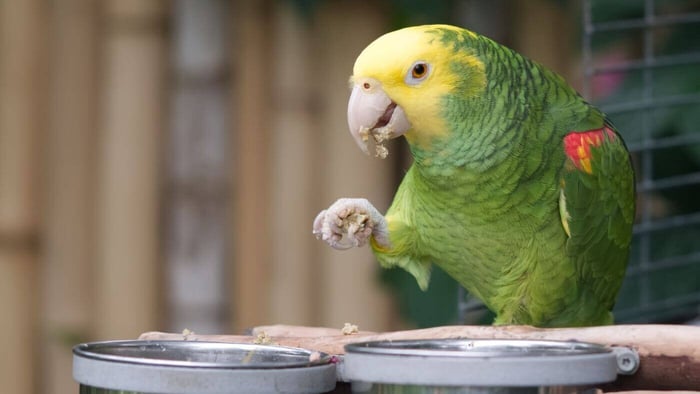
If you haven't tried organic parrot pellets yet, we urge you to check the ingredient list of your current parrot food to find out what it contains. It'll likely imply that when you give your birds the pellets, you offer them an all-natural, nutrient-rich diet that will keep them happy and healthy. Moreover, many pellets are USDA-certified organic.
But wait: you will likely also find peanuts, soy, maise, sugar, artificial colours, and a variety of other substances on the list that you cannot identify and would not consume yourself. Compare these pellets to those of Harrisons, TOP's, Beaphar, and many more of the fully organic parrot food pellets available at Parrot Essentials, and we are convinced you will agree that they are the best on the market.
Let's have a look at the brands we use and love ourselves.
Tip: Always ask your vet before changing your parrot's diet. They can give you advice on which foods to go for and how to make the switch.
At Parrot Essentials, we can also offer you advice and support on how to switch and what pellets you should use for your parrot. Just give us a call to find out more. www.ParrotEssentials.co.uk/Contact-Us
Types of Organic Parrot Food Pellets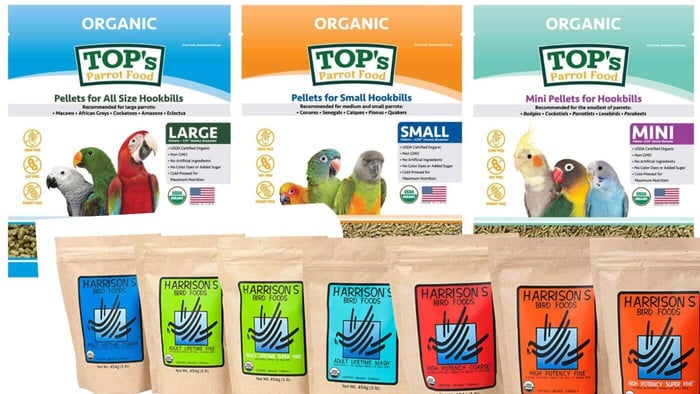
1. Harrison's High Potency Organic Parrot Food
One hundred per cent organic, nutritionally balanced feed for African Greys and giant Macaws (though also available in smaller sizes).
Harrisons Bird Foods has created the first and only 100 per cent organic bird food. Its components are suitable for human consumption and consist of high-quality whole grains.
When your parrot has higher nutritional needs, such as during breeding, moulting, raising, weaning, or illness, you can use High Potency. The brand should also be used as the primary source of nourishment for African Greys and giant Macaws, owing to their high nutritional needs.
2. TOP's Outstanding Pellets Natural Parrot Food
Most birds happily consume pelleted food manufactured from individual-grade and certified organic components.
TOP's Outstanding Large Pellets are cold-pressed to preserve the maximum possible quantities of vitamins, natural enzymes, and other nutrients. It guarantees that your bird receives the highest-quality nourishment.
Lemon, rosemary, and orange peel are among the natural components used to conserve the nutrient-rich pellets and keep them fresh and delicious for your bird.
You can be certain that you are providing your bird with a portion of entirely natural food since only the nutritional goodness found in nature is utilised to prepare this complete diet.
3. Harrison's Adult Lifetime Fine Organic Parrot Food
Whereas Harrison's High Potency line is meant as a diet for parrots with higher nutritional requirements, Lifetime pellets are perfect for daily use. These fine pellets are suitable for small to medium parrots, although there is also a coarse variety available.
Harrison's Bird Foods is the first and only 100% organic bird food approved for human consumption, along with healthy whole grains.
Why Does Organic Parrot Food Matter?
Getting organic food for your bird does not require you to be "fancy" or "picky" in your purchasing decisions. However, knowing how and why certain, but not all, food options might be detrimental to your bird's health is still essential. Unfortunately, low-quality bird foods that do not include organic components may conceal threats. Despite this, they can still be found in your average pet store.
Here are a few of the concerns that are often associated with non-organic foods:
- Fungicides
- Pesticides
- Herbicides
- Insecticides
Artificial preservatives
As per the Audubon Society, pesticides yearly kill 67 million birds in the wild. This proves the disturbing fact that birds are extremely vulnerable to pesticides.
The unpleasant irony is that many of the sprayed crops that kill wild birds wind up in bird food and seed mixtures for both domesticated and wild birds. Because birds are among the most prevalent dangers to crops, most insecticides used in crop fields today are intended to repel them specifically.
After crops are processed and transformed into pet food components, the impact may not be as abrupt or dramatic. Nevertheless, we continue to feed the birds minute doses of these same substances daily without knowing the long-term impact on their health.
Standard Diet for Parrots
Almost all species of pet parrots thrive on a diet consisting mostly of high-quality pellets. These pellets should constitute 50 to 60 per cent of your bird's daily caloric intake. Many commercial pet food producers provide them in different shapes, sizes, colours, and tastes to appeal to your specific bird. Give a few different brands a try to see which your bird prefers!
The second important component of your parrot's diet ought to be fresh vegetables and fruits. These will supply critical minerals and vitamins, as well as keep feeding time fun.
Vitamin A and Calcium are essential nutrients for the sustained health of pet parrots. Both deficiencies may result in major health issues. To prevent this, feed your bird the appropriate quantity of fresh food and use a high-quality pellet as a staple.
Should You Feed Seeds?
Your parrot's diet can contain a small amount of seeds. A fully seed-based diet is unhealthy for your parrot, even though it's still widely recommended. Dry seeds don't contain all the (micro)nutrients a parrot requires to thrive and are too high in fat for use as a daily staple.
Like allowing children uncontrolled access to sweets, your parrot will almost exclusively consume fatty, unhealthy seeds if given the chance. As such, should be used occasionally as snacks and not left in the cage for free access. Try sprouting seeds to make them more nutritious!
Tip: Some pet owners like feeding their parrots a portion of their meal. This is generally OK in moderation, but human foods are high in substances that shouldn't be part of a parrot's diet. Their bodies don't respond well to the amounts of salt, sugar and fats in our favourite snacks.
Challenges in Feeding Parrots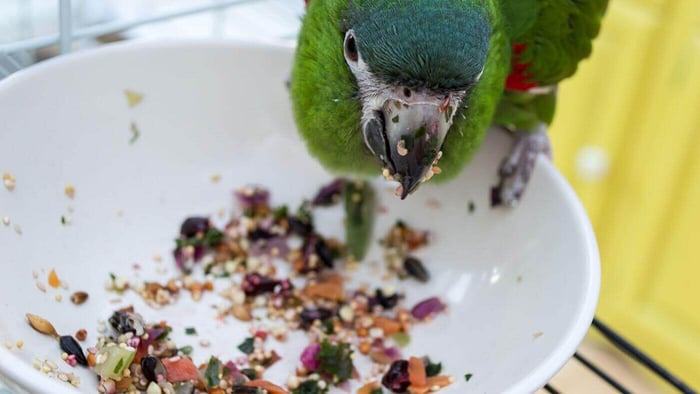
If you acquire a fully mature parrot that has been reared on an unsuitable diet, altering its feeding habits might be a difficult task. As per the Edgeworth Animal Medical Center, this is not accomplished overnight. Still, it's important to be patient. A proper diet can make a drastic difference in your bird's overall health.
You should be careful when adjusting your parrot's diet, asking your vet for advice before making drastic changes. If you abruptly replace your parrot's normal meals with pellets, it may starve. Some simply don't recognise the pellets as food at first!
Using the pellets as rewards can help teach your bird that they are meant to be consumed. Then, you add pellets to its food bowl while progressively decreasing the number of seeds. Eventually, you can finally eradicate the seeds and utilise them as snacks only. You can find more information about switching to a pellet-based diet in the article on how to get your parrot to eat pellets.
Foods to Avoid
There are some foods and drinks that your parrot should never consume. Listed here are some of the most common foods that should never be around your birds.
- Avocado. All parts of this fruit cause cardiac issues in parrots; thus, any diet containing even minute quantities of avocado is avoided.
- Apple seeds. Contain small levels of cyanide and are toxic to your parrot. Apples are OK, but carefully remove the seeds before consuming them.
- Caffeine. A hazardous chemical in tea, coffee, and various drinks. Avoid giving these to your parrots.
- Chocolate. It may cause digestive and neurological system issues that culminate in death and seizures.
- Uncooked beans. They are hazardous to parrots and humans because they contain a toxin called hemagglutinin. The cooking procedure eliminates the toxins in cooked beans.
Frequently Asked Questions 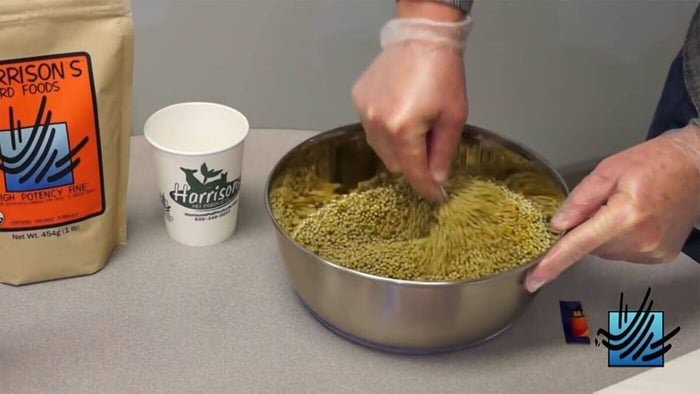
What Are Parrot Pellets?
They are a commercially produced food formulation consisting of seeds, fruits, vegetables, and cereals. They supply your parrot with a range of beneficial minerals, vitamins, and nutrients.
What Are Bird Pellets Composed Of?
Common components include maise with the hull removed, wheat grass, alfalfa, roasted soybeans, oats, barley grass, wheat germ, and vegetables and fruits. Pellets, as long as they are high in quality, provide agricultural and tamed birds such as cockatiels, chickens, and parrots with high concentrations of diverse components and nutrients.
Are Bird Pellets Nutritious?
Yes, pellets make a nutritious meal for your parrot as long as you avoid low-quality brands. In contrast to a meal consisting just of seeds, high-quality bird pellets include balanced amounts of vitamins, fat, and minerals to maintain the health of your bird.
Should Parrots Consume Pellets or Seeds?
We still have much to know about the dietary needs of pet parrots, but most pellets offer a much better combination of nutrients than seeds. Seed mixtures that are often fed to pet birds are nutritionally imbalanced: too high in fat and too low in (micro)nutrients.
Does a Parrot Eat Rice?
Both cooked and raw rice are safe for parrot consumption. Remember that your bird's ancestors only encountered uncooked rice in the wild. Most parrots prefer to eat cooked rather than raw. Boil gently and add daily to keep it fresh.
How Often Should You Feed Your Parrot?
You can feed your bird twice each day. The most natural times to feed would be at sunrise and sundown.
What Is the Healthiest Meal for Parrots?
Healthy meals include raw or heated produce (preferably organic, when available), whole grains, or pseudo-grains that have been cooked, such as brown rice, wild rice, oats, quinoa, barley, buckwheat, teff, and amaranth. Submerged and cooked or sprouted beans or legumes, as well as vegetables, also make great choices.
Wrap Up
We hope you now have a decent understanding of what organic parrot food pellets are. Responsible parrot owners recognise the significance of proper nutrition and cater to the nutritional demands of these lovely animals we chose as companions.

